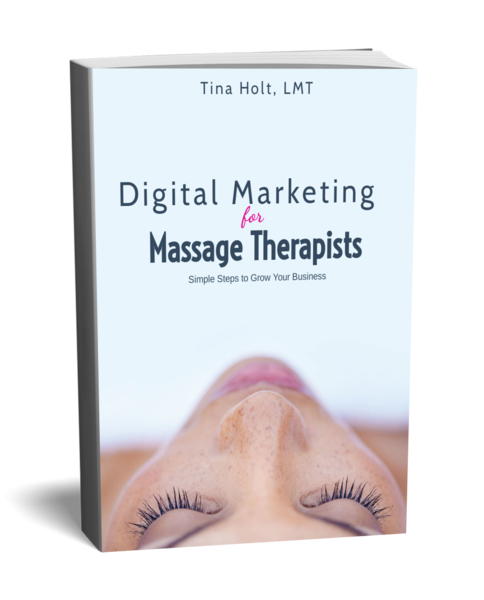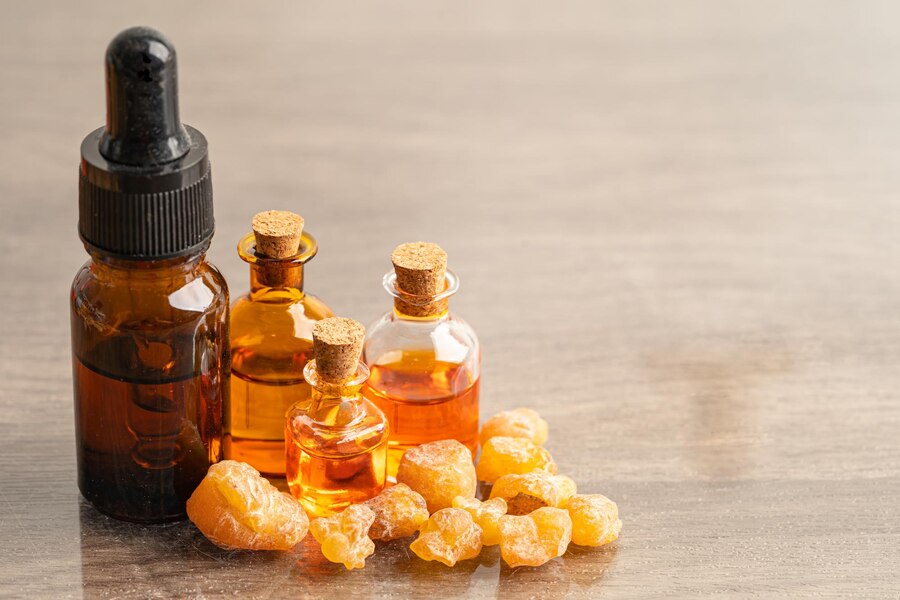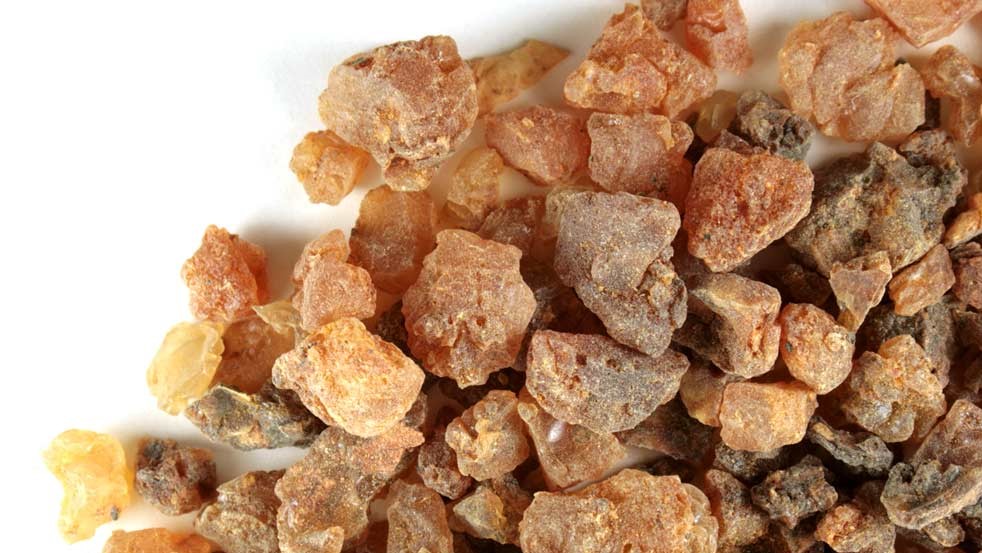
Digital Marketing for Massage Therapists was written for massage professionals and small business owners, as a guide to help you navigate the sometimes complicated world of digital marketing.
After spending thousands of dollars trying to market my massage practice, with very few regular clients in return, I decided to start marketing online.
It took me years to learn all the things I've shared in this book! Literally!
But, when my business finally took off (and it's still doing very well - I'm so busy) - I promised myself I would help others build their business with what I had learned!
That's when I wrote this book!!
10 Myrrh Essential Oil Uses
Myrrh essential oil uses have been considered effective for treating wounds and infection, but are now being studied for their ability to possibly fight certain types of cancer cells.
This oil is derived from the resin (sap) of a tree called Commiphora Myrrha, which grows in middle East countries and in Africa. It is harvested from cutting the tree to obtain the resin, and produces with steam distillation.
This oil is a yellow-colored oil, with a bitter taste and a smoky smell. It has been used for thousands of years by natural medicine practitioners for it's benefits for overall good health, illness and various ailments.
Common myrrh essential oil uses:
- Skin Care- helps heal dry, damaged skin, commonly added to help moisturize.
- Respiratory Relief - great for cough and cold symptoms that include respiratory disorders. Can be inhaled or diffused.
- Oral Health Care - use as a mouthwash or to add to toothpaste to prevent gum and mouth disease
- Digestive Health - helps upset stomach and indigestion
- Astringent - used for many centuries to help stop bleeding
- Helps kill fungus- great for ringworm, athletes foot, when applied directly to fungal area daily for 1-2 weeks
- Helps with Hypothyroidism - apply 2-3 drops directly to thyroid area every day
- Helps heal wounds naturally- known to promote optimum function of white blood cells, perfect to heal wounds and prevent infection
- Strengthens Hair - may help nourish hair and prevent hair loss by making roots stronger
- May help fight cancer - Many studies are being conducted all over the world with this oil and it's ability to possibly help fight cancer.
Research shows that myrrh helps slow growth of eight different types of cancer, although much more research is needed, it is a positive step. Read more about this research.
There are two active chemicals in myrrh oil, terpenoids and sesquiterpenes, which have antioxidant and anti-inflammatory properties. Both are being studied for their ability to fight infection and possibly cancer.
History tells us that myrrh was most often used for embalming and as an antiseptic for wounds, but Chinese countries have used it as treatment and part of a traditional medicine for hundreds of years.
Avoid concentrated forms of this oil, and usage in high doses if you are pregnant, have low blood pressure, are on blood thinners, have diabetes, or heart problems. Always consult your doctor before use.
Myrrh essential oil uses are for skin care, hair care, and wounds, but scientists are discovering many more healing benefits in this oil, and the best uses are yet to be revealed.
Products that contain Myrrh Essential Oil
Here are some common products that may contain myrrh essential oil:
- Perfumes and colognes: Myrrh has a rich and aromatic scent, making it a popular ingredient in perfumes and colognes. It adds depth and warmth to fragrance compositions.
- Cosmetics and skincare products: Myrrh essential oil is often used in skincare products due to its potential benefits for the skin. It may be found in moisturizers, serums, facial masks, and creams targeting specific skin concerns.
- Massage oils: Myrrh essential oil is known for its calming and grounding properties. It can be found in massage oils, providing a soothing and relaxing experience.
- Aromatherapy products: Myrrh is a staple in aromatherapy due to its earthy and resinous aroma. It can be found in diffuser blends, essential oil candles, and room sprays.
- Oral care products: Myrrh has antimicrobial properties, which make it suitable for oral care products. It can be found in toothpaste, mouthwashes, and oral rinses.
- Traditional medicine and herbal remedies: Myrrh has a long history of use in traditional medicine and herbal remedies. It may be found in tinctures, herbal supplements, and natural remedies targeting various health concerns.
- Incense and candles: Myrrh resin has been used as incense for centuries. It is often combined with other aromatic ingredients to create incense sticks or used in the form of essential oil in candles.
- Bath and body products: Myrrh essential oil can be found in bath salts, shower gels, body lotions, and bath oils, providing a luxurious and aromatic bathing experience.
When purchasing products containing myrrh essential oil, it is essential to ensure that the oil is sourced from a reputable supplier and used in appropriate concentrations for safe and effective use.

Benefits of Myrrh Essential Oil
Potential health benefits associated with myrrh essential oil are:
- Anti-inflammatory properties: Myrrh essential oil contains compounds that have been found to possess anti-inflammatory effects. It may help reduce inflammation in the body, which could potentially benefit conditions such as arthritis, respiratory issues, and skin irritations.
- Antimicrobial effects: Myrrh essential oil has demonstrated antimicrobial properties against various types of bacteria and fungi. It may be used to support immune health and help fight infections. However, it's important to consult with a healthcare professional for appropriate treatment of any specific infection.
- Oral health benefits: Myrrh essential oil has been used in oral care products for its potential benefits in maintaining oral health. It may help combat bad breath, promote healthy gums, and support overall oral hygiene. However, it's important to use it under the guidance of a dentist or healthcare professional.
- Skin health: Myrrh essential oil is often used in skincare products for its potential benefits for the skin. It may help promote skin regeneration, reduce the appearance of wrinkles, and soothe dry or irritated skin. However, it's important to dilute it properly and perform a patch test before using it topically to avoid any adverse reactions.
- Stress relief and emotional well-being: Myrrh essential oil is commonly used in aromatherapy for its grounding and calming effects. It may help promote relaxation, reduce stress and anxiety, and enhance emotional well-being.
It's worth noting that the scientific research on the health benefits of myrrh essential oil uses is still limited, and more studies are needed to fully understand its effects and potential risks. It's crucial to use essential oils safely and consult with a healthcare professional or aromatherapist before using them, especially if you have any underlying health conditions or are pregnant or breastfeeding.

New! Comments
Have your say about what you just read! Leave me a comment in the box below.